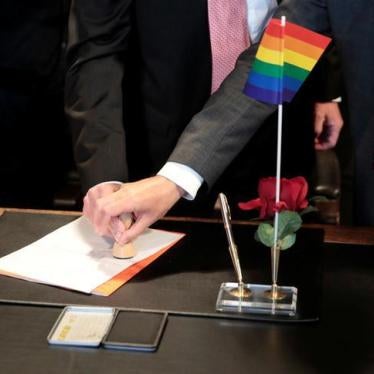Joanne Cassar got married in a small town in eastern Malta last night, capping a 9-year battle to win that right as a transgender woman in the deeply Catholic country. Today, Joanne and others in the Mediterranean nation had even more to celebrate as the government passed a long-overdue progressive gender recognition law, heralding important gains on transgender and intersex rights.
The bill has been sent to the president for signature.
Malta’s Gender Identity, Gender Expression, and Sex Characteristics Act came about largely because of Joanne’s tireless efforts. In 2011, after years of battling legal gauntlets at home to no avail, she took her case to the European Court of Human Rights. By 2013 the Maltese government had settled the case out of court and a year later added gender identity as grounds for non-discrimination in the constitution.
The 2015 act states its own goals simply: “[to provide] a simplified procedure which respects the privacy of the person requesting that one's official documents be changed to reflect the person's gender” and acknowledges that “gender identity is considered to be an inherent part of a person which may or may not need surgical or hormonal treatment or therapy” and “sex characteristics of a person vary in nature and all persons must be empowered to make their decisions affecting their own bodily integrity and physical autonomy.”
It pivots away from the too-common construal of gender identity as a pathology in need of a diagnosis, stating that people “shall not be required to provide proof of a surgical procedure for total or partial genital reassignment, hormonal therapies or any other psychiatric, psychological or medical treatment.” It also mandates a “best interests of the child” determination for applicants under 18, requires respect for gender recognition determinations from abroad, and sets up a working group on transgender healthcare to research international best practices. Notably, one-third of the working group’s members must be human rights experts.
All of this comes amid a campaign to end the nightmare people face accessing legal gender recognition in Europe. Thirty-four European countries still do not allow gender recognition without invasive and humiliating procedures. Today’s Mediterranean momentum sets an example.









